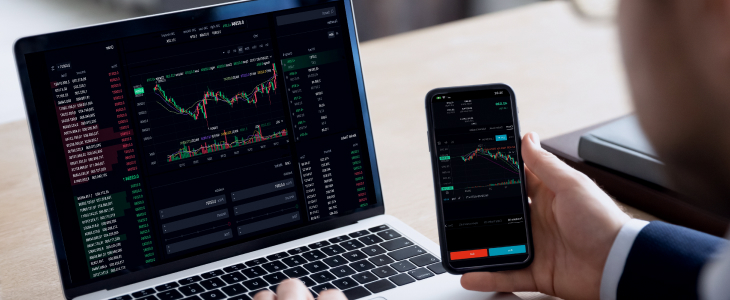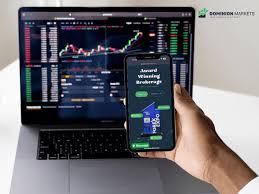
Forex trading can be an exciting venture, but it also comes with its unique challenges. For those new to the field, demo trading forex Trading Broker KW offers a safe platform to learn and practice without the financial risks associated with live trading accounts. This is where demo trading comes into play, providing a valuable opportunity for traders to hone their skills before delving into real-money trading.
What is Demo Trading in Forex?
Demo trading in forex allows individuals to execute trades in a simulated environment using virtual currency. This practice is crucial for beginners as it provides insight into trading strategies, market behaviors, and the functionalities of trading platforms without any financial risk. Demo accounts mimic real trading environments, helping new traders understand how to navigate the forex market.
Importance of Demo Trading
The forex market operates on a 24-hour basis, and to be successful, traders need to develop a thorough understanding of market conditions, economic indicators, and how to react to them. Demo trading plays a significant role in this development for several reasons:
- Risk-free Learning: Since demo accounts use virtual money, traders can experiment with different strategies without the fear of losing real funds.
- Understanding the Platform: Every trading platform is different. A demo account allows users to familiarize themselves with the interface, features, and tools without financial pressure.
- Testing Strategies: Traders can test their strategies and see how well they perform under different market conditions, which is crucial for developing confidence and proficiency.
- Psychological Preparation: Demo trading helps traders deal with the psychological aspects of trading. By simulating real market conditions, traders can practice making decisions under pressure, which is essential for live trading.

How to Start Demo Trading
Starting your journey with demo trading is simple and straightforward. Here’s a step-by-step guide:
- Choose a Reputable Broker: Research and select a trading broker that offers a demo account. Look for platforms known for their excellent customer service, educational resources, and user-friendly interfaces.
- Sign Up for a Demo Account: Most brokers offer an easy sign-up process for demo accounts. Fill in the required details to set up your account.
- Download the Trading Platform: Many brokers provide their trading platforms for desktop or mobile. Download the required software or use the web-based platform to access your demo account.
- Start Trading: Familiarize yourself with the platform, and begin practicing. Explore different currency pairs and test various strategies.
Strategies for Success in Demo Trading
While demo trading is a great way to learn, it’s important to approach it with intention and strategy. Here are some tips:
- Treat it Like a Real Account: Many traders make the mistake of treating demo accounts lightly because there’s no real money on the line. Treat your demo trading as if it were a real trade. Set goals, follow your trading plan, and track your performance.
- Keep a Trading Journal: Documenting your trades, strategies, and emotions will help you understand your decision-making process. This practice allows you to analyze your results and improve your trading strategies.
- Experiment with Different Strategies: A demo account grants you the freedom to explore diverse trading strategies. Whether you’re new to scalping, day trading, or swing trading, use this time to find what suits your trading style best.
- Analyze Your Results: Regularly review your performance. Look for patterns in your winning and losing trades. Understanding these patterns will guide you in refining your strategies.
Transitioning to Live Trading
Once you feel confident in your trading skills and have developed a solid trading plan, it may be time to transition to live trading. However, this should be done carefully:
- Start Small: When transitioning to a real account, consider starting with a small investment. This approach minimizes risk as you adjust to the emotional aspects of trading with real money.
- Leverage Wisely: Understand the implications of leverage in forex trading. Use it judically to increase potential profits while managing your risk exposure.
- Set Realistic Expectations: Set achievable goals based on your trading performance in the demo account. Don’t expect immediate success; instead, focus on continuous learning and improvement.
- Stay Disciplined: Once you start trading live, your psychological response will differ from that in demo trading. Maintaining discipline and adhering to your trading plan is crucial for long-term success.
Common Pitfalls in Demo Trading
While demo trading is an invaluable tool, there are common pitfalls to avoid:
- Lack of Seriousness: Not treating demo trading earnestly can lead to bad habits that may carry over when real money is on the line.
- Overconfidence: Success in demo trading may lead some traders to become overconfident when transitioning to a live account, which can result in significant losses.
- Ignoring Risk Management: Failing to implement risk management strategies in a demo account can lead to poor trading habits that persist in a live account.
Conclusion
Demo trading serves as an essential stepping stone for aspiring forex traders. It provides a risk-free environment to learn about the market, test strategies, and develop emotional resilience. By treating the demo experience seriously and taking a disciplined approach to both practice and eventual live trading, traders can significantly increase their chances of success in the forex market. Ultimately, the journey from demo to live trading can be both exciting and rewarding when approached with the right mindset and preparation.

 by Angerfist
by Angerfist